Graduate Institute
Banner campaign - show and tell with PhD students
In 2019, a number of H-BRS PhD students proved that research does not take place in hidden places: Since then, they have been showing their faces on banners on the bicycle stands on the Sankt Augustin campus. They want to draw attention to their research topics and get into conversation with interested parties.
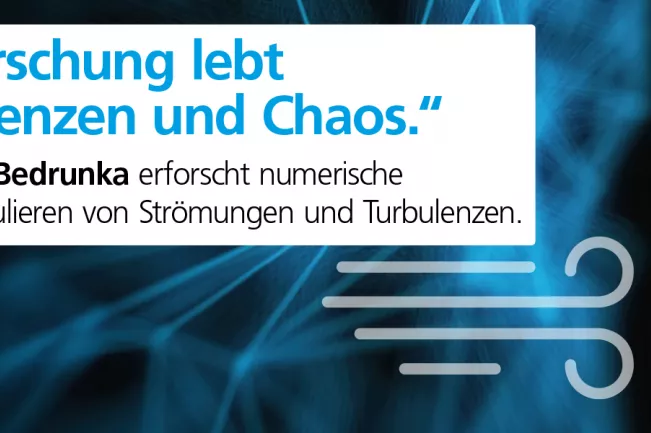
Currents and turbulences surround us every day: we see them pouring milk into coffee, in the smoke of an incense stick or feel them during a turbulent flight. Predicting these flows requires both mathematical descriptions and methods to solve these equations. Mario Bedrunka is researching Lattice Boltzmann methods for calculating these flows. In recent years, these methods have proven to be a mature tool for flow simulations and enable the efficient calculation of turbulence, which is always present in aerospace or electromobility. With the focus on turbulence in porous media, current issues such as hydrogen storage in chemical form can be analysed. Supervisor: Prof. Dr. Dirk Reith.
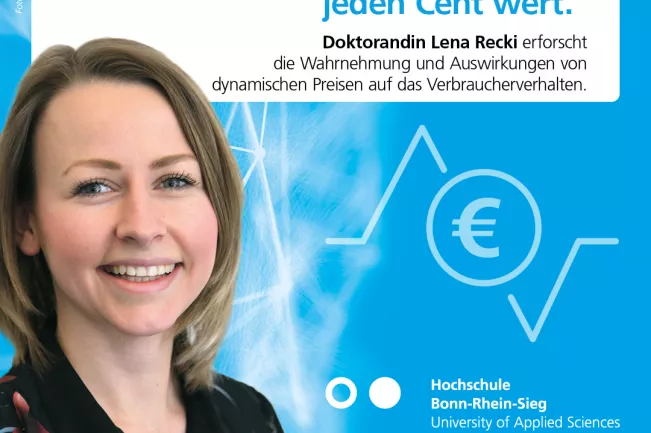
Dynamic price models are no longer uncommon in some sectors, especially for travel and flight bookings. Due to changing market conditions, prices for identical products are adjusted dynamically over time and now in real time. In her research, Lena Cassens deals with the effects of this pricing policy on consumer behaviour. With her findings she wants to show how customers perceive and accept dynamic prices and what potential the model offers in industries such as food retailing. Supervisor: Prof. Dr. Gunnar Stevens.
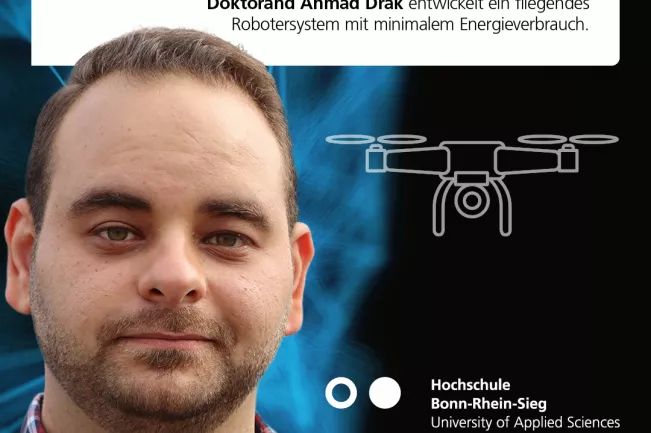
Ahmad Drak develops a flying robot system that is capable of efficiently exploring the ever-changing environment in which it moves. The result is a wealth of useful information that the system is designed to learn and maximize. Firstly, it shortens the time the robot takes to explore its environment, and secondly, it reduces the energy consumption of the robot system. Supervisor: Prof. Dr. Alexander Asteroth.
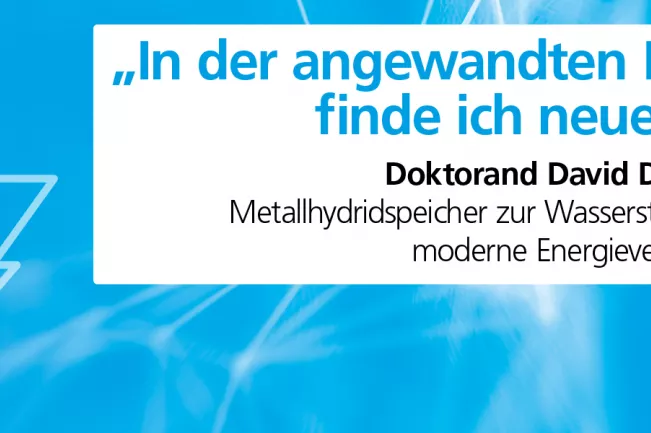
Hydrogen as an energy carrier is a promising alternative to fossil fuels. An important aspect for its use is storage, for which metal hydrides are suitable. The gas is chemically bound in a metal or metal alloy. One of David Dreistadts' research goals is to investigate the integration of such metal hydride storage systems for hydrogen into modern energy supply networks. With the help of the simulation, knowledge about the optimal design and operation of these networks is to be gained. Supervisor: Prof. Dr. Stefanie Meilinger.
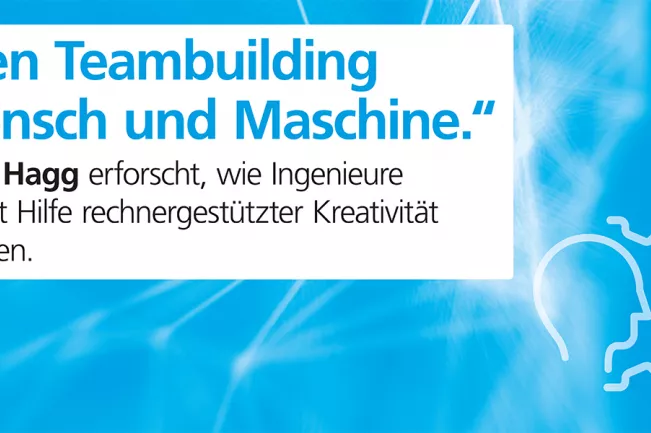
Engineers and designers often want to anticipate early on in development processes which potential solutions will meet quality criteria that are important to them, e.g. in architecture, aircraft technology, urban planning or robotics. Because not all criteria can be easily described, such processes are usually divided into different phases. PhD student Alexander Hagg investigates how so-called quality diversity algorithms, which are capable of producing large amounts of good solutions, can be embedded as interactive tools in development processes. This creates an interaction between man and machine, which enables the engineer to discover innovative solutions early in the development process. Supervisor: Prof. Dr. Alexander Asteroth.
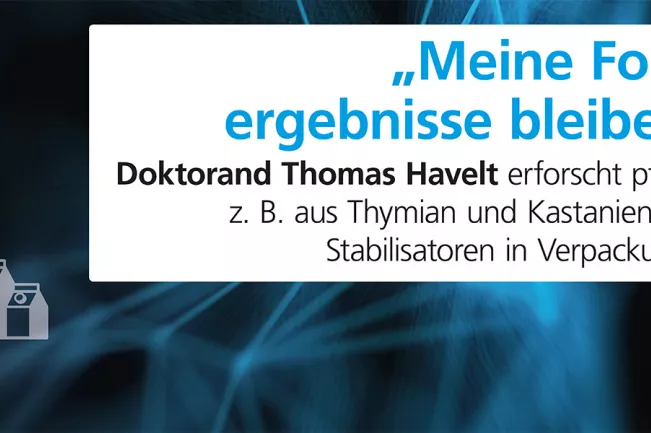
Plastic packaging is usually made from petroleum and contains chemicals that prevent the packaging from decomposing and significantly increase its shelf life. Thomas Havelt is researching plant-based alternatives for these chemicals, some of which are hazardous to health and the environment, with the aim of developing more environmentally friendly packaging. Thomas Havelt is a scholarship holder of the Faculty of Applied Sciences and works in the EFRE project (Bio-based materials and packaging materials, sub-project Bioactive additives) at the H-BRS site in Rheinbach. Supervisor: Prof. Dr. Michaela Schmitz.
Link to an interesting podcast with Thomas Havelt.
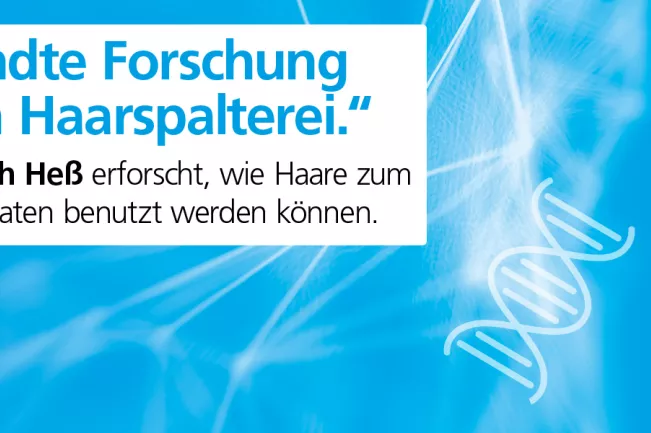
Sarah Heß' research goal is the detection of DNA profiles ("genetic fingerprints") from fallen single hairs. In most cases, they carry only a small amount of DNA, which has disintegrated into very short pieces. In order to deduce the cause of the trace from the hair, the analysis of this trace type requires a number of highly sensitive detection methods, which are improved at the H-BRS and optimized for application to micro traces. Supervisor: Prof. Dr. Richard Jäger.
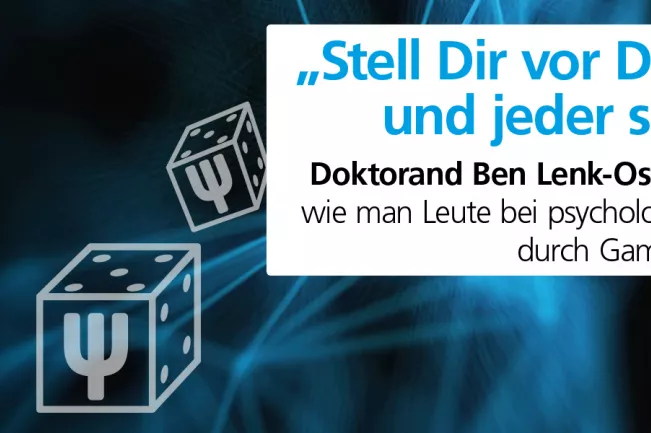
In many regions there is a lack of psychotherapists, so patients have to wait a long time for appointments. In order to bridge these waiting times, some patients temporarily make use of therapeutic help via the Internet. Unfortunately, these aids (interventions) are usually quite monotonous, which leads to high dropout rates. So how do we succeed in creating interventions that not only help but are also fun? Ben Lenk-Ostendorf deals with this field of research. He systematically tries to turn interventions into games so that health is fun. Supervisor: Prof. Dr. Christine Syrek.
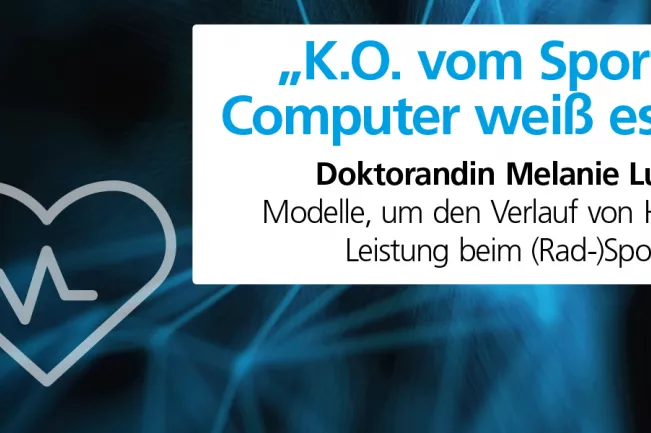
In her research, Melanie Ludwig is investigating how she can model a person's fitness during endurance sports on the computer using heart rate only, i.e. how she can simulate and predict it. Normally, the determination of fitness in endurance sports is associated with complex and strenuous tests, which are particularly difficult to implement in hobby and health sports for many reasons. With her computer models, which are based on everyday sporting activities and heart rate, Melanie Ludwig wants to avoid complex tests and support as many people as possible with individual and health-promoting training. Supervisor: Prof. Dr. Alexander Asteroth.
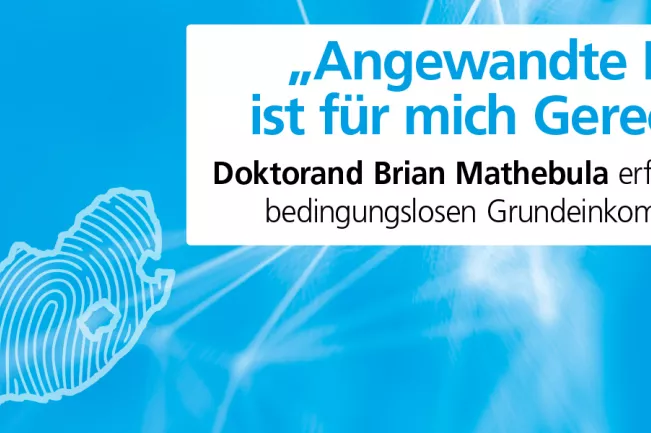
South Africa is characterised by high unemployment, poverty and inequality. The universal basic income support (UBIG) was discussed as a political option, but not systematically. Currently, different concepts of the UBIG exist, and it is not known whether different variants of the UBIG would lead to different (political) levels of support. Brian Mathebula's research focuses on the different conceptual understanding of the UBIG. He wants to know what socially accepted preconditions would be necessary to implement the unconditional basic income in South Africa. Supervisor: Prof. Dr. Esther Schüring.
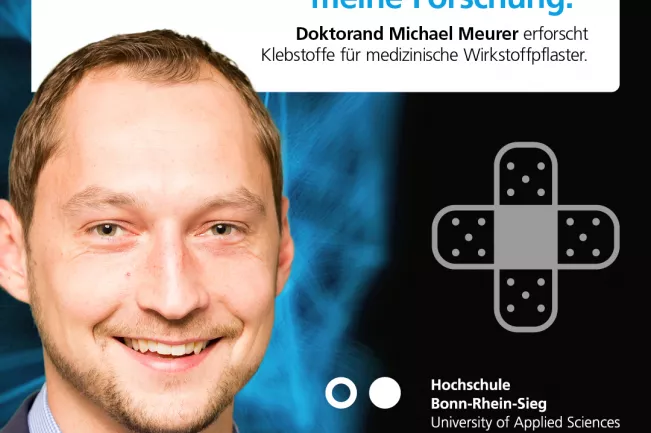
Michael Meurer's research interest gets under the skin. He deals with Transdermal Therapeutic Systems = TTS. These are drug patches that are stuck onto the skin and release active substances from a depot into the body. These patches are used to treat severe pain or diseases such as Alzheimer's and Parkinson's disease. Unfortunately, the adhesion of these plasters to stainless steel plates is unfortunately tested as a standard method far removed from the application. On human skin, however, the adhesion can be quite different. That is why Michael Meurer is researching application-oriented test methods on artificial skin substrates in order to advance the further development of plasters. The goal is the adhesion of the entire patch to the skin over a period of up to one week. Supervisor: Prof. Dr. Bernhard Möginger.
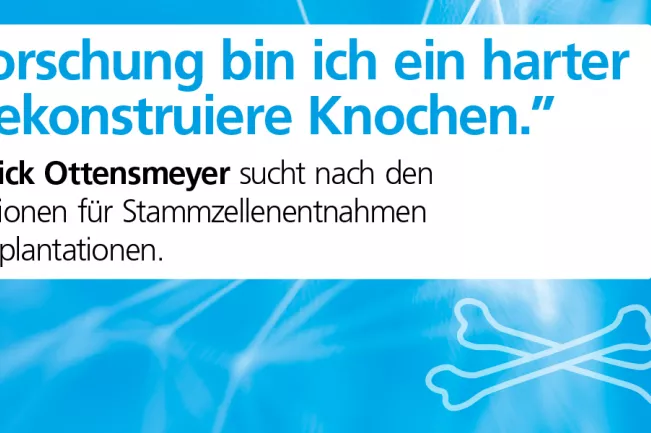
Patrick Ottensmeyer is investigating how people with large bone defects and a need for transplants can be helped. He isolates human stem cells from fat and differentiates them into bone cells on a carrier material. Using "HOX" transcription factors, he hopes to define the best body region for stem cell harvesting. In addition, Patrick Ottensmeyer is trying to stimulate bone cell development and the formation of new blood vessels for the supply of the graft with specific receptors. The new system will be tested in cell cultures, bioreactors and preclinical applications. Supervisor: Prof. Dr. Edda Tobiasch.
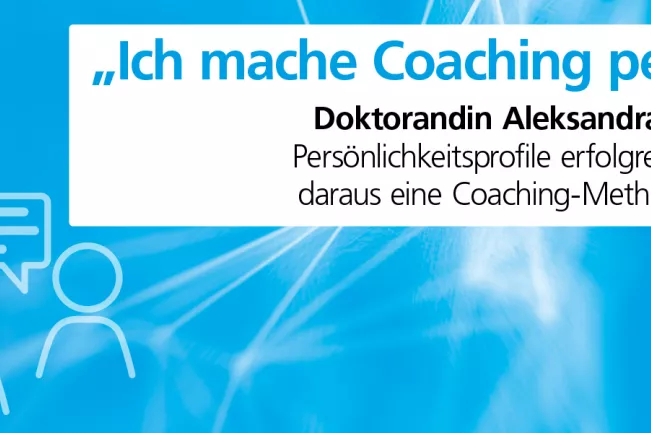
Personalities found companies. Aleksandra Paluch develops a modular coaching concept based on a questionnaire for the acquisition of personality traits of successful company founders, which can be individually adapted to the personality trait of the company founder. In addition to the evaluation of the concept, it also clarifies the question of changing the specific personality traits for successful or unsuccessful company founders and examines whether the well-being of the coached company founders differs from that of the non-coached founders. Other relevant constructs, such as the individual's ability to deal with change, to communicate or to network, should expand the research question in the course of the doctorate. Supervisor: Prof. Dr. Peter Muck.
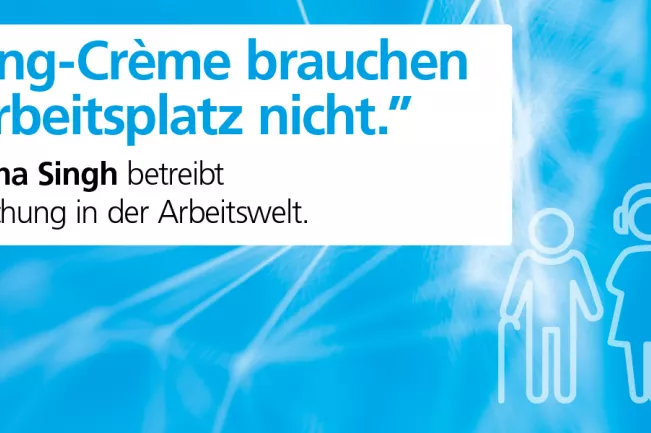
"War for Talent" is the battle for qualified employees in times of a shortage of skilled workers. Due to globalization and demographic change, German companies are also in the midst of this battle for the best brains. PhD student Usha Singh investigates how areas of personnel planning in companies can be optimized: To what extent can visible features such as facial expressions or generational affiliation be used in application procedures? Do younger generations, in particular Generation Y, have different job ideas than people belonging to older generations? Different older employees may also have different health needs. For this reason, Usha Singh also questions trends in sustainable company health management, especially with regard to the design of breaks. Supervisor: Prof. Dr. Theo Peters.
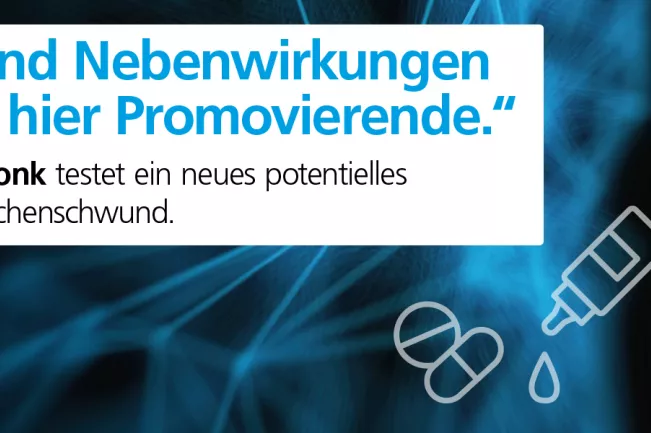
Osteoporosis (bone atrophy) is a systemic skeletal disease in which the bone substance is increasingly broken down. Basically, osteoporosis cannot be cured nowadays. Only the progression of the disease can be delayed by treatment. However, currently used drugs can have considerable side effects, making new target molecules useful for additional treatment strategies. Cathepsin K could be such a target molecule. Therefore, Christian Tonk is investigating a cathepsin K inhibitor for its influence on bone metabolism in order to test the capacity of the inhibitor as a future drug against osteoporosis. Supervisor: Prof. Dr. Edda Tobiasch.
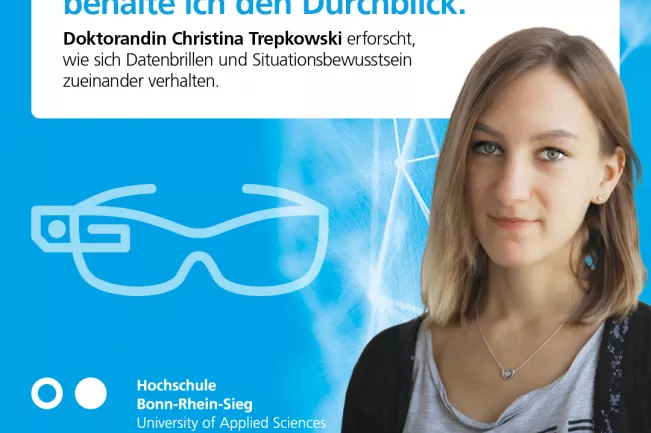
Augmented Reality glasses are data glasses in whose field of vision all imaginable information is displayed visually at the same time. This information is intended to improve awareness of certain situations by correct perception, interpretation and assessment of the surroundings. Current AR glasses, however, have one disadvantage: their field of vision is so small that the information they display can obscure critical information from the environment, distract the wearer or overwhelm him with too much information density. Christina Trepkowski is working on converting part of the visual digital information into audio and vibration stimuli. As a psychologist, her focus is on evaluating, comparing and optimizing these novel methods by developing and applying methods to measure the situational awareness of spectacle wearers. Supervisor: Prof. Dr. Ernst Krujiff.